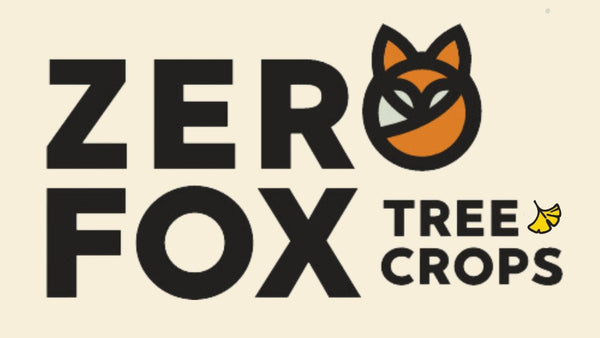Edible Sweet Chestnut (Castanea spp.)
Edible Sweet Chestnut (Castanea spp.)
Couldn't load pickup availability
Special Offers

Why We Grow It
Why We Grow It
We grow these chestnut lines because together they create a high-performing, cold-hardy, and genetically diverse chestnut planting. The Gellatly trees contribute proven Canadian-adapted hybrid genetics with reliable nut set and strong disease resistance. The 6 Mile strain adds resilience, fast growth, and consistent production under harsh conditions. The ND Euro provides straight timber form and dependable European nut quality. Planted together, these types cross-pollinate exceptionally well, improving yields, extending genetic diversity, and offering a mix of timber, food, and long-term orchard resilience for northern growers.
How the Plant Grows
How the Plant Grows
Chestnut trees grow with a strong, upright trunk and a broad, spreading canopy, creating shade for understory plants. The more chinese the heritage the more spreading the tree. They can even have multiple trunks and look like a shrub for the first decade. They bloom in late spring with long catkins, which attract pollinators, followed by the development of spiny burrs that mature in autumn, each containing 1-3 nuts. In agroforestry systems, strategic planting on berms or using the pit-and-mound technique enhances drainage and tree health, ensuring consistent yields. Over time, the trees develop into majestic, long-lived providers of food, timber, and ecological benefits.
Plant Size
Plant Size
Size at Maturity- Canopy Layer. Grows to 50-65 feet tall with a spread of 30+ Feet feet, depending on the species and growing conditions.
Current Size- XL 2'+ tall
Large 1'-2'
Small up to 6"-12"
Additional Info
Additional Info
Chestnuts have been a key food source for countless cultures across the temperate world, cherished for their ability to produce starchy, nutritious nuts. These nuts are consumed raw, roasted, or processed into flour, offering a versatile ingredient for many dishes. The high carbohydrate content of chestnuts makes them an excellent feed for livestock in integrated systems, reducing the need for external feed sources and enhancing sustainability. Chestnut wood is highly valued for its durability, especially in mushroom cultivation, as it provides an ideal substrate for growing diverse fungi species. In agroforestry practices, dense planting followed by strategic thinning allows for optimized nut production and timber harvesting, minimizing waste and maximizing resource use.
Chestnut trees, often referred to as the “bread tree,” are a staple of temperate food forests and agroforestry systems worldwide. Known for their starchy, delicious nuts and valuable timber, these trees provide abundant annual harvests while enhancing the landscape with their beauty and utility. Chestnuts are highly valued for human consumption, animal feed, and as a substrate for mushroom cultivation, making them a versatile and productive species for permaculture and sustainable farming.
Seedling:
Gellatly: This chesnut seedling is an offspring from famous nut breeder Jack Gellatly’s heritage nut farm in Kelowna, BC. Gellatly used a combination of European and Chinese genetics to create hybrids that produce large crops of nuts while maintaining cold hardiness and disease resistance. Many of the parent trees are well over 75 years old and producing heavily with no signs of disease. Very good as a pollinator for other chestnuts.
6 Mile: Seedlings come from an old set of trees located near our farm in the Nelson BC area. Reportedly a hybrid of Japanese and American parentage the productive trees we collect from have a heavy consistent yield of nuts every year and has withstood temps below -30 c in its lifetime. Fast growing seedlings, we’ve seen young trees grow more than 4 feet in a year if planted in a rich site.
ND Euro:A vigorous European Chestnut selected for its straight timber form and reliable annual nut crops. This cultivar develops a clean, upright trunk with strong wood quality while producing medium, sweet chestnuts each season. Hardy, productive, and dual-purpose, it’s an ideal choice for growers seeking both quality nuts and long-term timber value.
Share
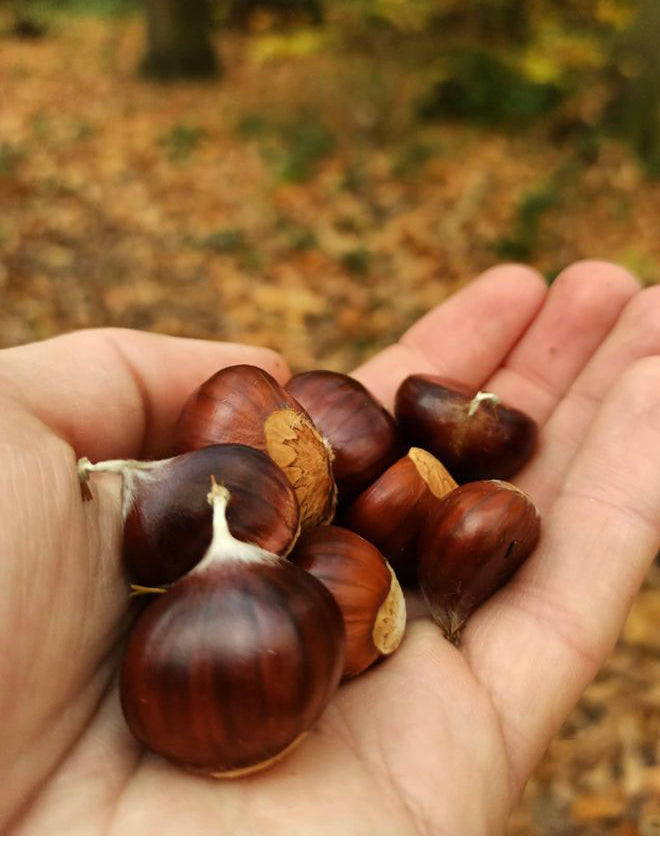
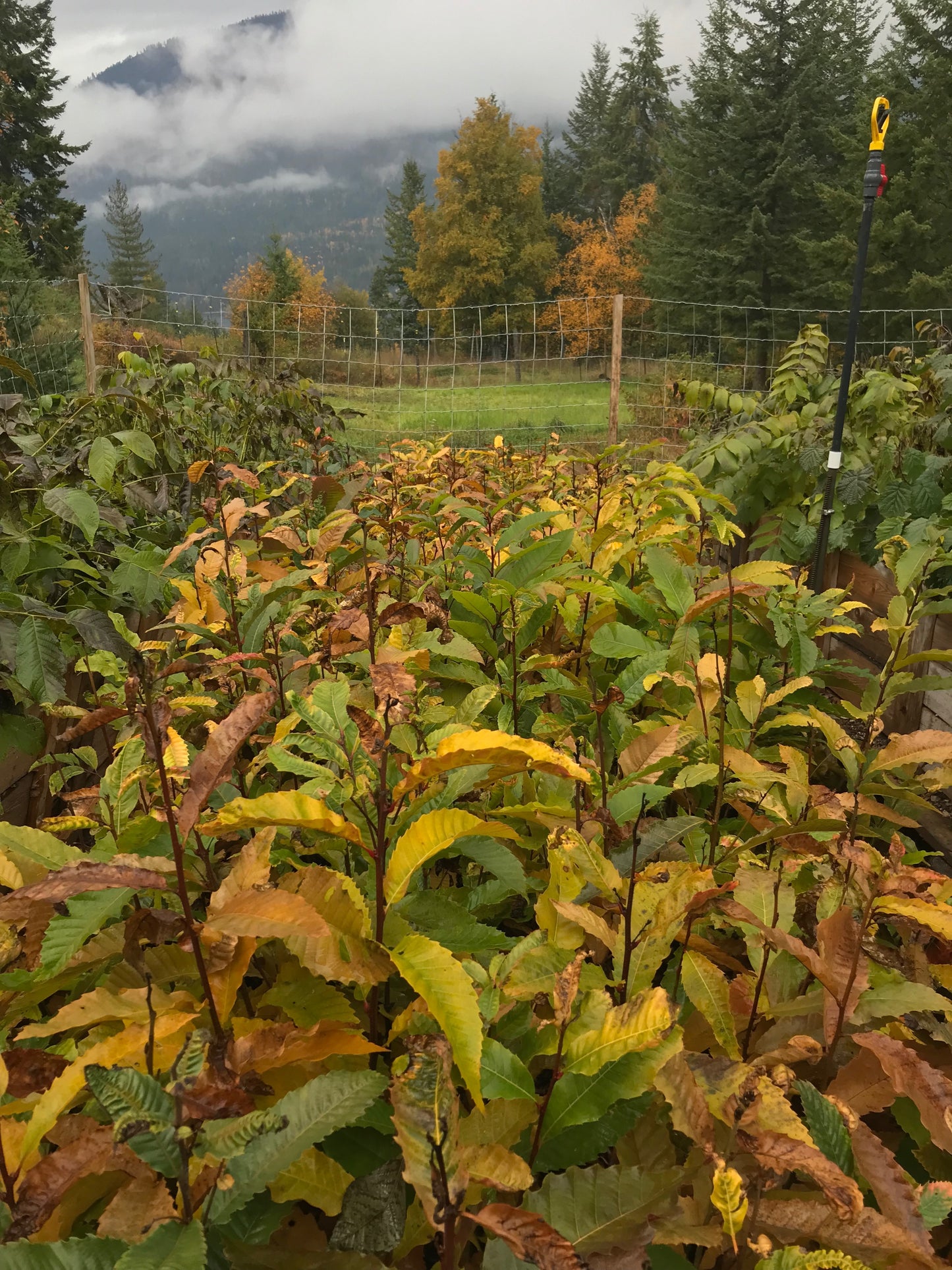
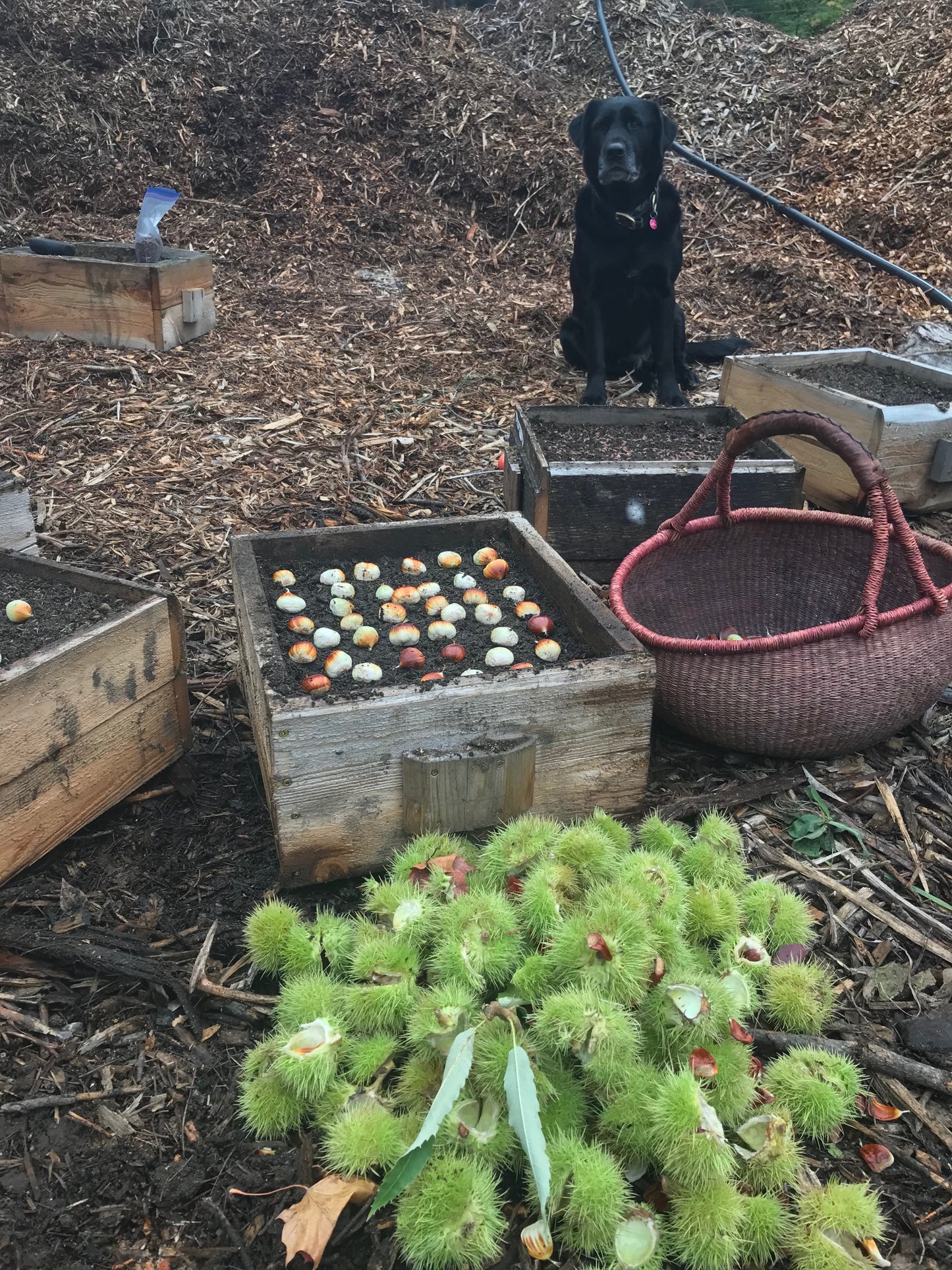
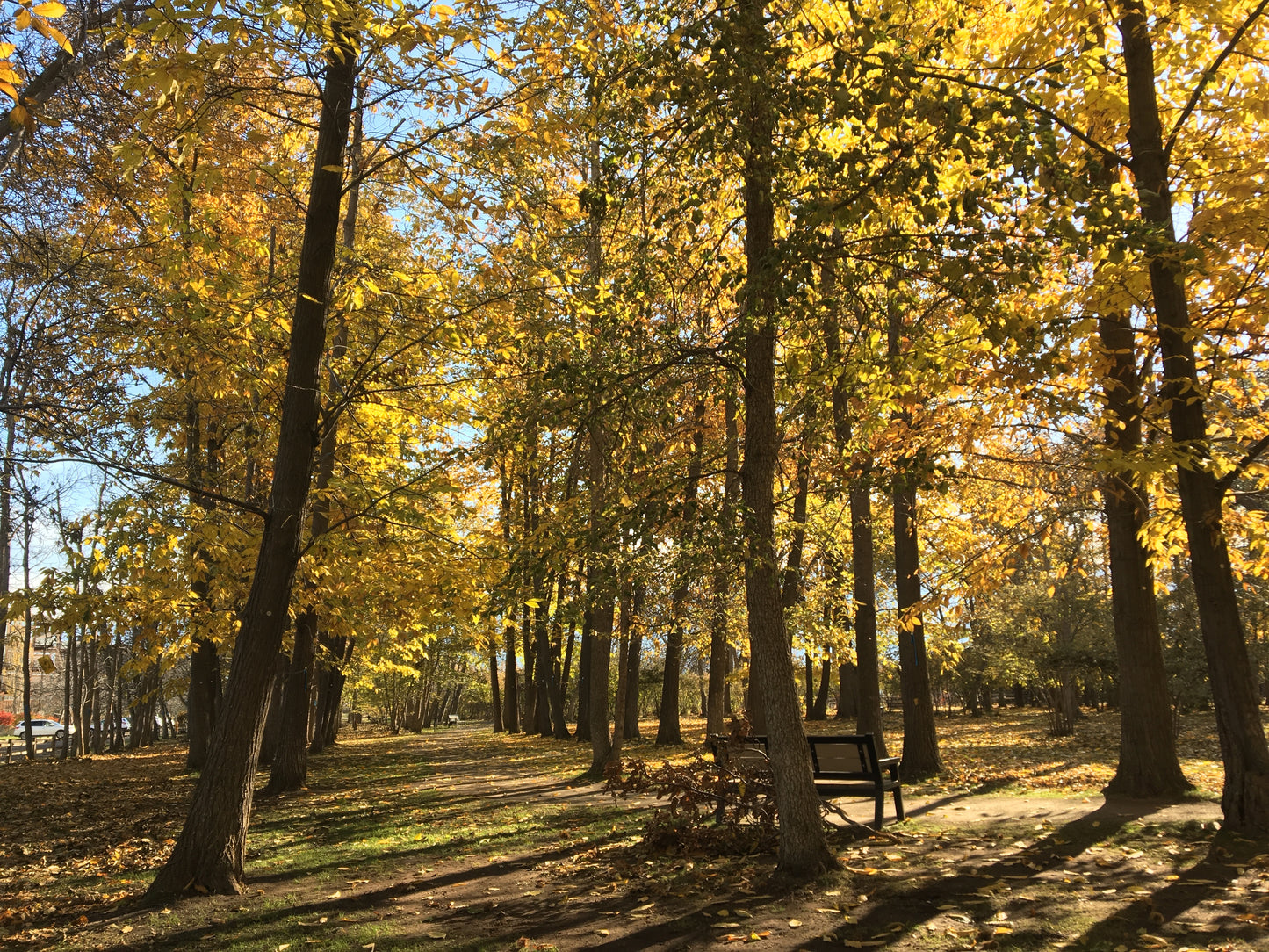
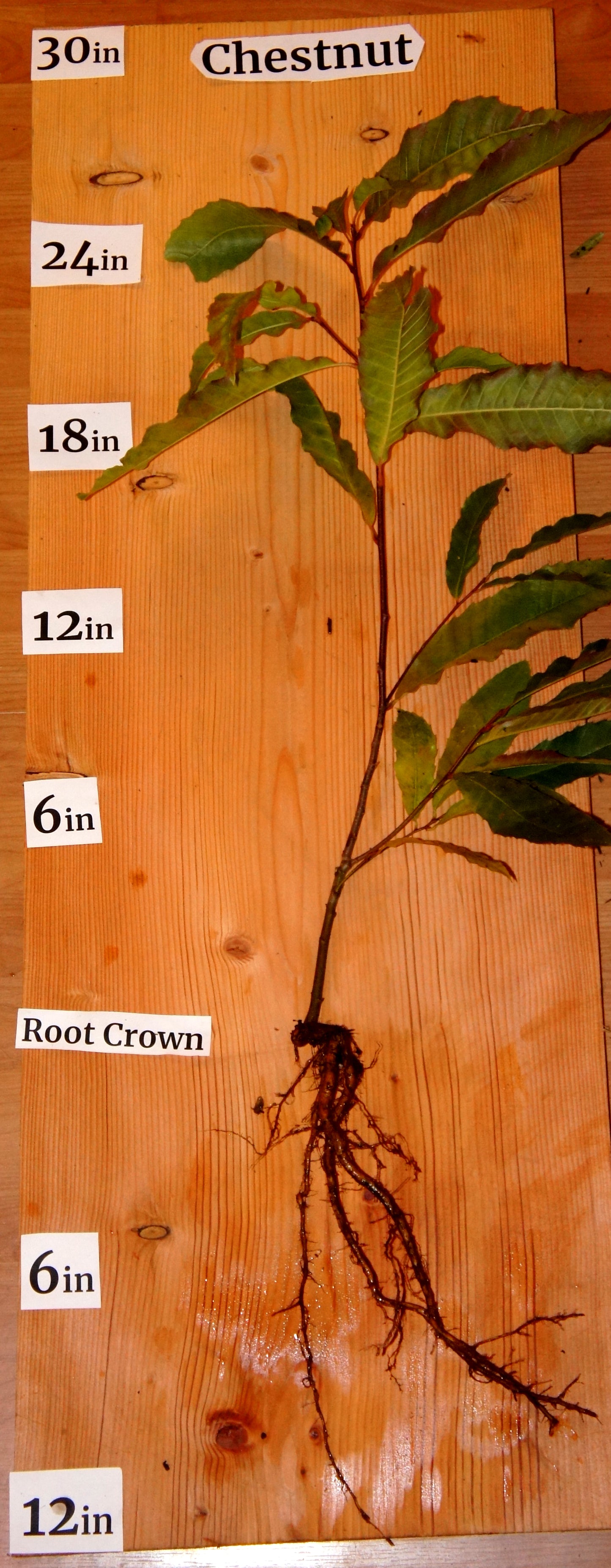
Plant Highlights
-

Water
Needs regular watering during establishment and the growing season for healthy nut development. Mature trees exhibit moderate drought tolerance
-
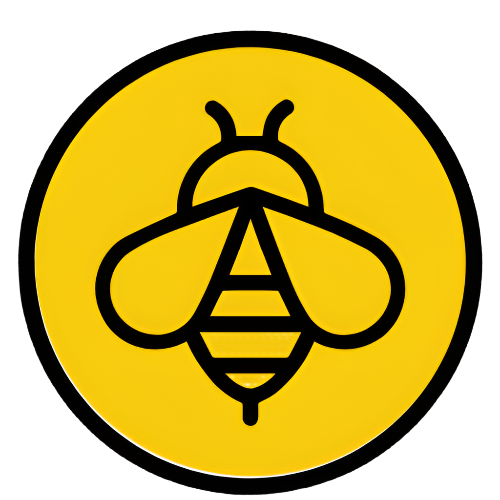
Pollination
Monoecious but requires at least two trees for cross-pollination. Plant trees 25 feet apart or closer for effective pollination.
-

Soil
Thrives in well-drained, loamy soils; prefers slightly acidic to neutral pH levels (4.5-7.0). We've seen trees in clay, silty and other mixed soil types. Very adaptable overall to soil type.
-

Years to Bear
Begins producing nuts at 5-10 years from planting, with increasing yields as the tree matures
-

Hardiness
Zones 4-9, tolerating temperatures as low as -34°C (-30°F)
-

Solar
Requires full sun for optimal nut production; tolerates light shade but with reduced yield.
Subscribe to our emails
Lots of Free Growing Info. Be the first to know about new plants and exclusive discounts.
